
30 Dec, 2014
Thai-Muslims Learn How “Halalness” can Benefit Them, Thailand, ASEAN and Islam
Bangkok – Although the term “halal” is widely assumed to denote just observance of Islamic dietary and lifestyle norms, the broader economic, geopolitical and socio-cultural benefits of the multi-billion dollar halal industry were very much in focus at the first Thailand Halal Assembly in Bangkok between 28-30 December 2014. Both Thai Prime Minister Gen Prayut Chan-ocha and former ASEAN Secretary-General Dr Surin Pitsuwan cited these benefits in their keynote speeches, and urged the foreign and local delegates to build inclusive, prosperous economies and societies based on “halal” practises.
An estimated 1,500 delegates from all around Thailand and 47 countries (within ASEAN and as far away as Brazil, Switzerland and South Africa) helped make it by far the biggest turnout of global Muslims for such a convention and exhibition in Thailand. Organised jointly by the Halal Science Center of Chulalongkorn University, the Central Islamic Council of Thailand and Halal Standard Institute of Thailand, the event was designed to help upgrade the standards of made-in-Thailand halal products and services to cater to the rapidly growing Islamic market. It saw the launch of Thailand Diamond Halal, a brand concept under which all halal products and services sourced in Thailand will be marketed and exported. Two workshops were devoted entirely to helping Thai halal companies upgrade their branding and better understand the plethora of confusing certification standards.
The event was a milestone for Thailand, a Buddhist-majority country whose six million Muslims comprise a little under 10% of the total population. It went a long way towards helping Thai-Muslims better understand the importance of their community to the country, the region and the world, not to mention their own faith and families. Some keypoints that emerged from the discussions and speeches:
National benefits
Thailand is an agricultural country, one of the world’s largest exporters of rice, rubber and cassava. Most of the Muslims residing in the provincial areas, especially in South Thailand, are farmers. Upgrading their ability to export their products to an estimated 1.4 billion-1.5 billion Muslims worldwide is a major revenue-stream opportunity. As Dr Surin pointed out, this potential is enormous, especially as the global population is growing, along with the Muslim population. Many countries are looking to underwrite their food security, particularly the Organisation of Islamic Cooperation (OIC) countries, most of which are net food importers.
More exports of Thai-made halal agri-products mean more jobs and income. Hence, the halal assembly fitted perfectly within the overall plan to position Thailand as the “Kitchen of Asia” and gave a new dimension to its status as a major food exporter.
Tourism is an associate beneficiary of this strategy. If agriculture is Thailand’s largest bedrock economic sector, tourism is its largest service sector and one of the most important job-creators. Halal products can be supplied to the growing number of restaurants and hotels catering to the Muslim visitors to Thailand. A number of exhibitors at the accompanying trade show were from the travel & tourism industry, the most prominent being Krabi, the South Thailand island which is positioning itself as a “Dream Destination for Muslims” (see pictures below). Many Bangkok hospitals catering to clients from the Middle East employ Arabic-speaking Thai Muslims in their service areas.
Gen Prayut also underscored the wider benefit of promoting inter-religious harmony and understanding within Thailand. Citing the presence of many delegates from the Organisation of Islamic Cooperation countries, he said clearly, “The Royal Thai government supported this event because we respect the religion of Islam.” The organisers reciprocated his support, noting in their speeches that they were loyal citizens of Thailand as well as good Muslims keen to advance social and economic development. They also went one step further. One of the songs rendered at the opening ceremony was composed to lyrics written by Gen Prayut.
Strategically, the objective is to enable a combination of mutual respect, economic development and social cohesion to facilitate a gradual decline in the separatist movement in Southern Thailand that has led to thousands of casualties on all sides over the last few decades.
ASEAN benefits
South Thailand is geographically one of Asia’s most critical bridgeheads. The isthmus linking Thailand and Malaysia also links the largely Buddhist northern countries of ASEAN (Thailand, Myanmar, Vietnam, Cambodia and Laos) with the largely Muslim southern countries of ASEAN (Malaysia, Indonesia and Brunei Darussalaam). As intra-ASEAN trade, transport and travel grows following the advent of the integrated ASEAN community in 2015, all forms of road and rail transport between North and South ASEAN has to go via South Thailand. The commercial and strategic importance of this geographical advantage cannot be overstated.
After the 2015 ASEAN Community, the roughly 650 million population of the 10 ASEAN countries will be roughly 46% Muslim. Better socio-cultural understanding will go right to the heart of promoting ASEAN integration. Many Thai-Muslims in South Thailand are fluent in Malay, which has much in common with Bahasa Indonesia, giving them a significant linguistic advantage, especially in terms of tourism and trade. More prominent Thai-Muslims on the ASEAN and global stage will certainly increase their influence and clout. Gen Prayut pointed out that the concept of ASEAN integration also included a very important socio-cultural “pillar” which went hand in hand with the other two “pillars”, economic and security.
The trade exhibition alongside also saw the participation of many companies from Malaysia. Over time, if the economic development of the Thai-Muslim community can help dissolve the separatist movement in South Thailand, it could also pave the way for a settlement of other socio-ethnic problems in the ASEAN region, such as in Myanmar and the Philippines.
Global Benefits
Dr Surin urged the Thai-Muslim community to use these assets and competitive advantages to help advance their commercial and scientific status and overcome the negative perception of violence and conflict associated with Islam worldwide. “Islam is a religion of peace. But everywhere, Muslims are either engaged in violence or parties to violence or victims of violence.” If Muslims accept this fact, it becomes a logical imperative for them to ponder what each of them can do underscore the role of Islam as a religion of peace. He used the Arabic phrase, “Rehmatul Alameen” which translates as a “mercy to mankind.”
Noting how this negative perception can potentially spare no-one, Dr Surin said that if his given Muslim name, Abdulhalim bin Ismail, were to be on his passport, there was a good chance he would be stopped at immigration checkpoints. “But my passport uses my official name, so there is no problem. It is that phenomena which we need to change, we need to transform. It is our responsibility to eradicate it out of the mindset of the global community.”
Personal benefits
For many of the young people, watching Dr Surin speak was in itself an inspiration. A master orator, he enjoys a dominant role-model status among young Thais who admire his humble upbringing and rise to prominence. He grew up in a pondok in South Thailand and went on to study at both Al Azhar and Harvard universities. A former newspaper columnist and university lecturer, he entered politics and became the Thai Foreign Minister and then ASEAN Secretary-General. Although many Thai-Muslims see him as being much too aligned with the agenda of the U.S. government, he generally cuts an impressive figure within their ranks.
A number of Thai-Muslim company executives availed of the Halal Assembly to come up to speed with the latest in global business issues, branding and marketing, thanks to a number of experts invited to address the various sessions. One of them was Dr Jonathan (Bilal) Wilson of the University of Greenwich in the UK. A Muslim convert, he shared a wealth of experience and knowledge on the importance of brand building and the key psychological drivers associated with purchasing decisions.
The corridors of the Assembly also featured prominent exhibits reminding participants of Islam’s contribution to global science, technology, medicine and astronomy. This was also clearly intended to inspire them to enhance their educational levels. Nearly all the staff manning the registration counters and helping with the administrative and operational management of the event were Thai-Muslim women, especially college-age youngsters.
Conclusion
Several foreign Muslim delegates were in Thailand for the first time, and pleasantly surprised to see the Thai-Muslim community in action. As such, the Assembly has gone a long way towards enhancing the image of Thailand as a Muslim-friendly tourism destination and advancing the pillars of national and regional ASEAN integration. It has also opened the doors to organising more conferences and events related to the Islamic world within Thailand, which enjoys observer-status in the Organisation of Islamic Cooperation. Most important, it has promoted the universal concept of building inclusive societies, especially by recognising and enhancing the role of the minority communities in nation-building.
The Thai government put up 20 million baht in taxpayers money to support the Halal Assembly. It has clearly been money well spent.
More details about the Assembly, programme, venue, etc: http://www.thailandhalalassembly.com/
See pictures below.
 Prime Minister Gen Prayut Chan-ocha with other leaders of the Thai Muslim community with the symbolic “Diamond” indicating the birth of the “Diamond Halal” brand for Made-in-Thailand products and services. |
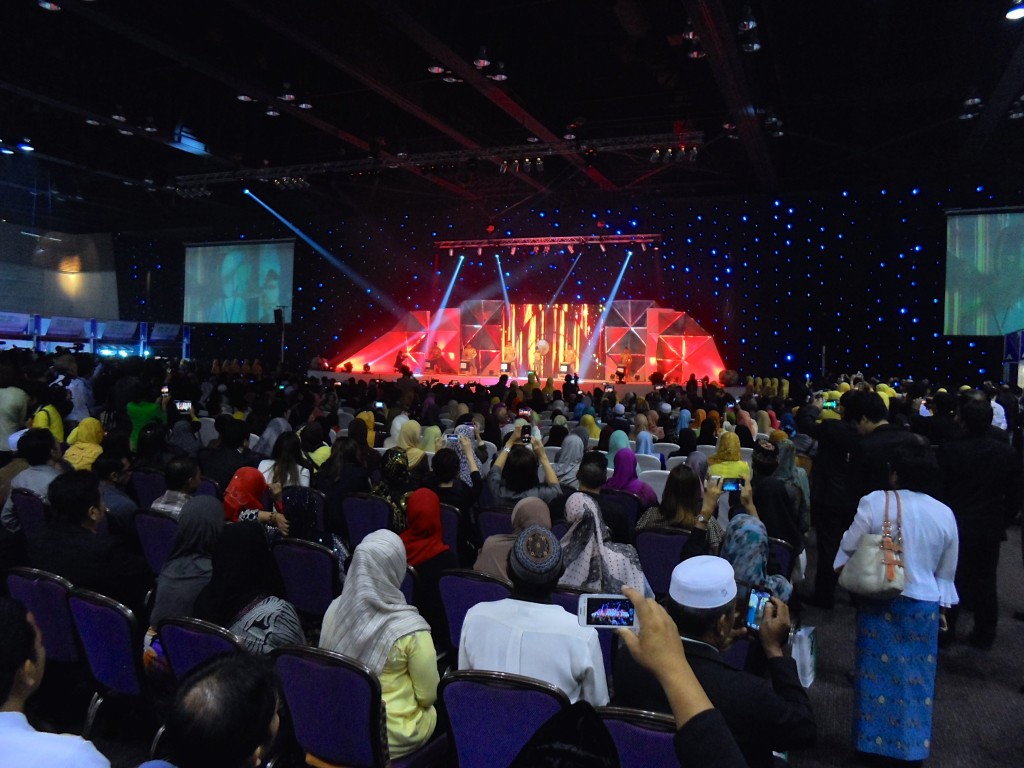 About 1,500 people packed the Bangkok Convention Centre at Central World for the opening ceremony. |
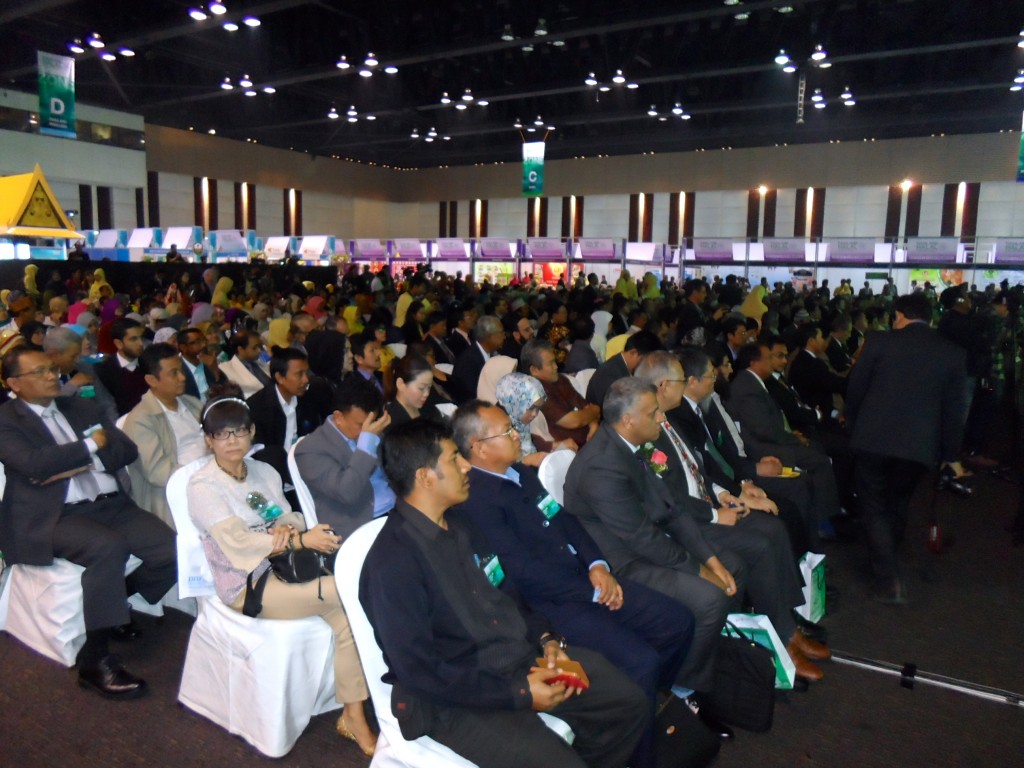 Some of the speakers and presenters in the front row. |
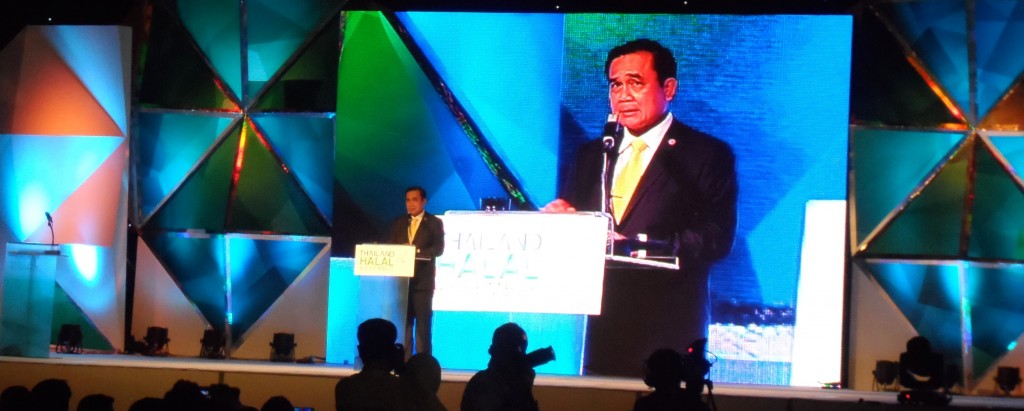 Thai Prime Minister Gen Prayut Chan-ocha delivering his speech. Although he had a prepared text, he spoke entirely extempore in Thai, ensuring that his message of peace and prosperity was clearly heard by the Thai-Muslims in the audience. |
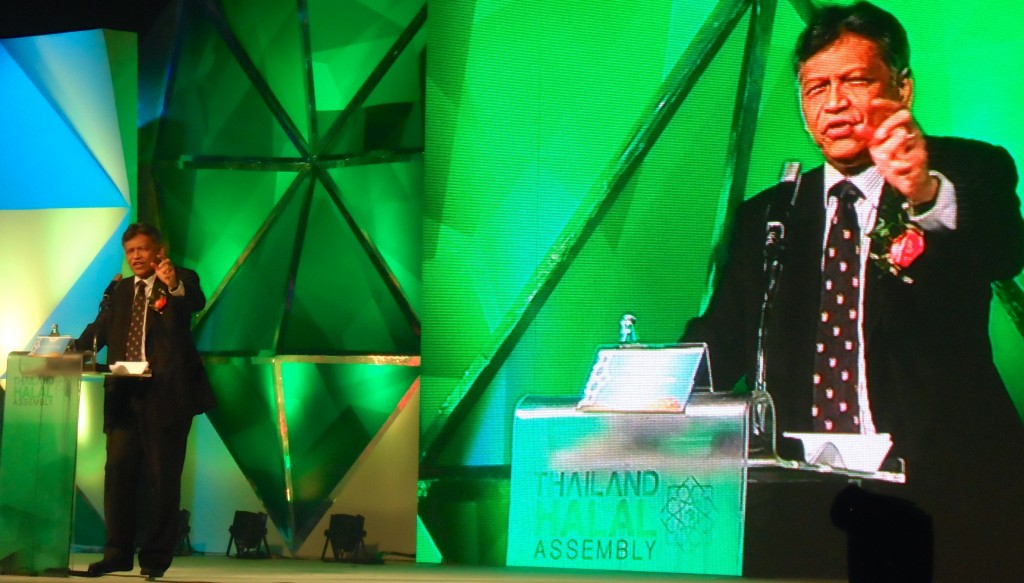 Former ASEAN Secretary-General and former Thai Foreign Minister Dr Surin Pitsuwan delivering his speech. He spoke simultaneously in both Thai and English, impressing many of the young Thai-Muslims who see him as a role-model of achievement on the global stage. |
 Thai-Muslim singers belting out a number composed around lyrics written by the Prime Minister Gen Prayut. |
 This high-octane performance of traditional Thai drums livened up the proceedings. |
 A line-up of the many senior delegates from 47 countries who attended the event. |
 At the registration desk on the opening day. Nearly all the support staff were young Thai-Muslim women. |
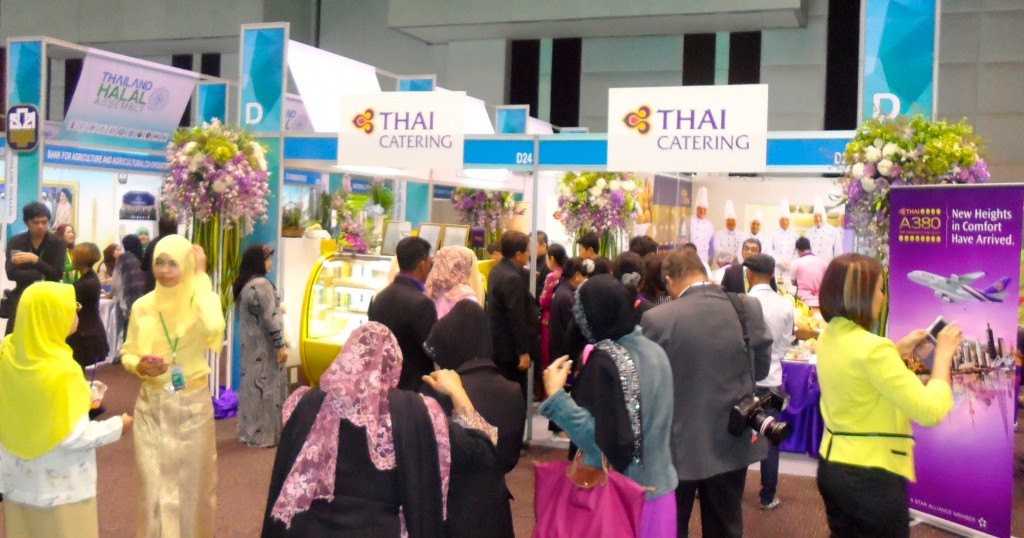 Thai Airways was one of the prominent travel & tourism sector exhibitors. |
 The sign leaves no doubt as to how Krabi position itself. |
 There was no shortage of free samples at the many booths, especially food-and-drink. |
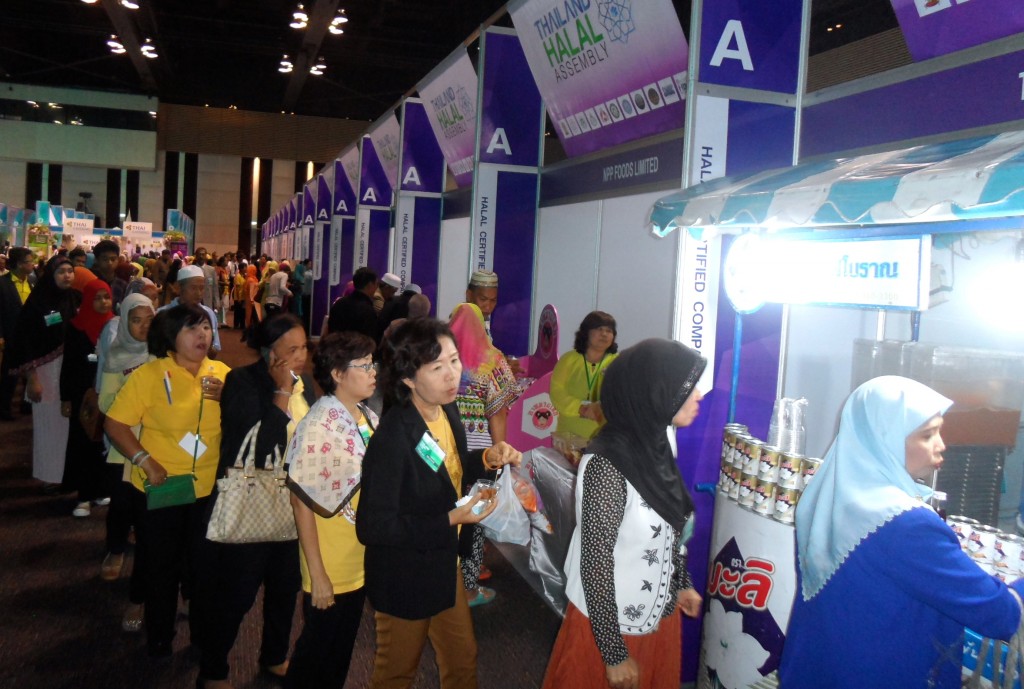 Another long queue for free food-and-drink samples. |
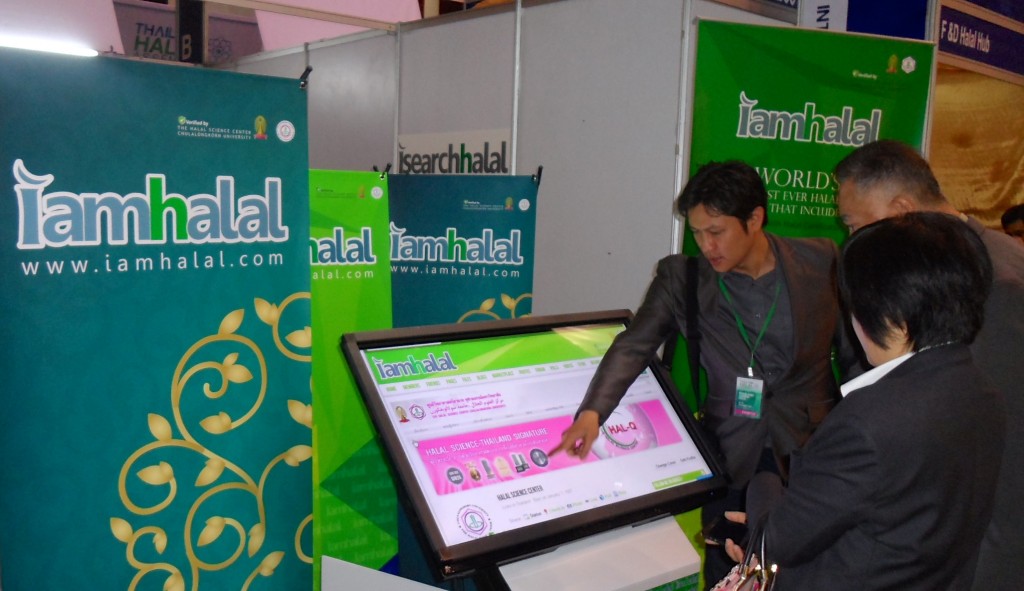 This is a new website launched at the Halal Assembly to act as both a social and business networking platform. |
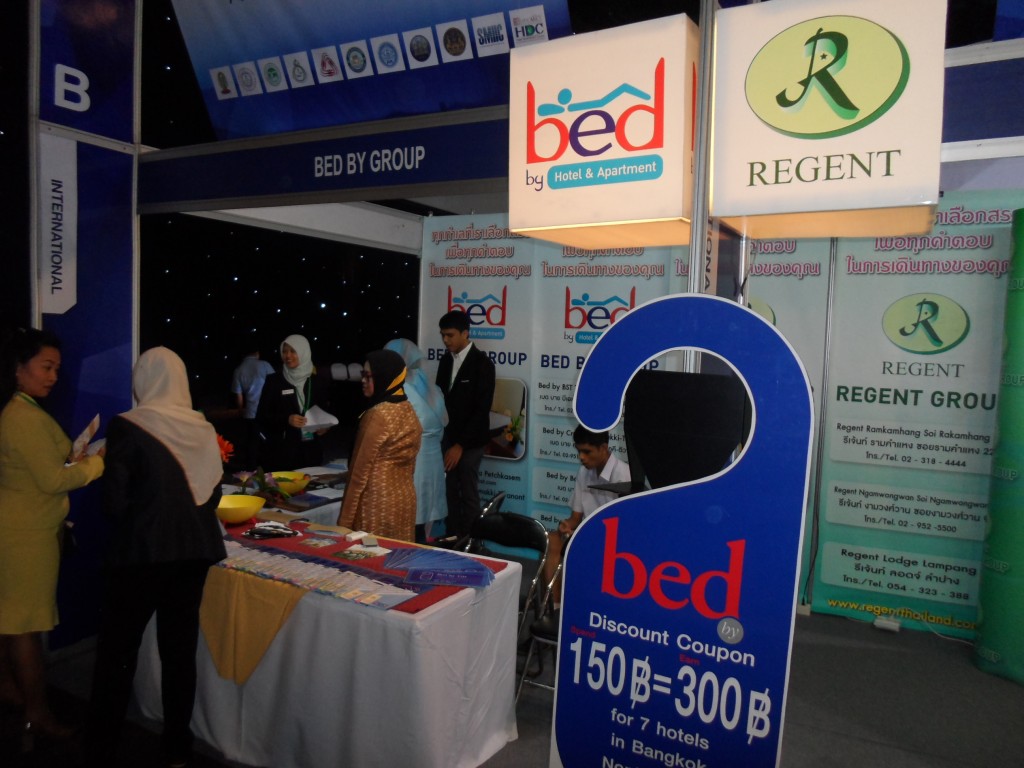 Some of the Thai-Muslim owned tourism businesses exhibiting at the Assembly. |
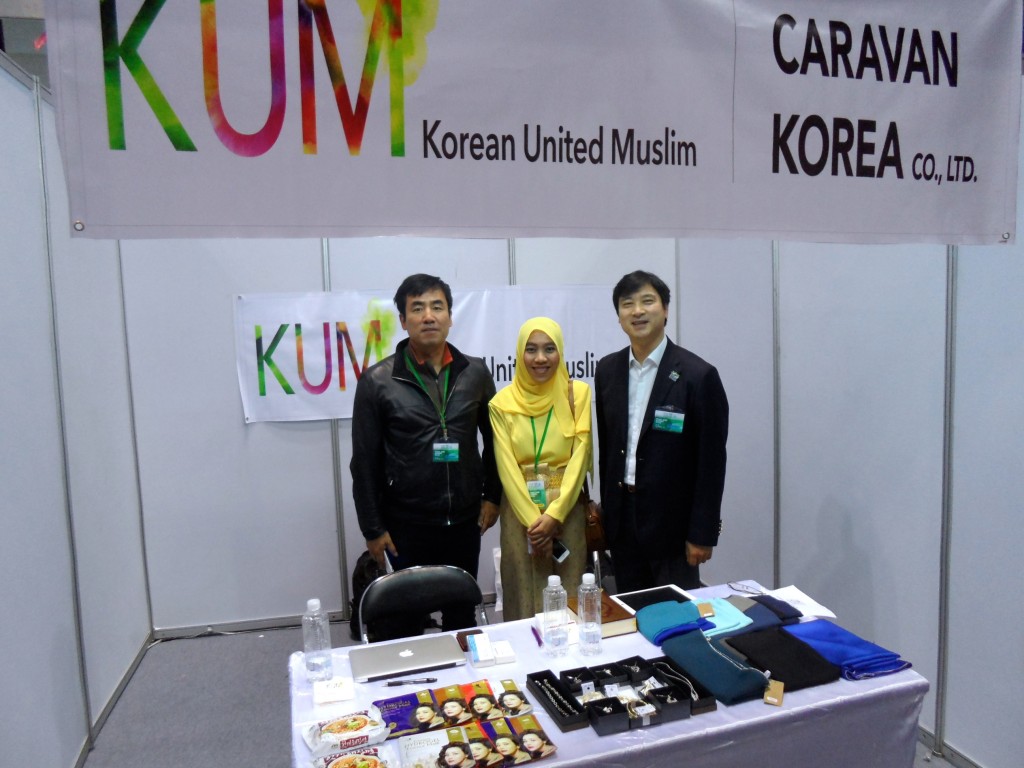 The Korean Muslim community had a small presence, too. |
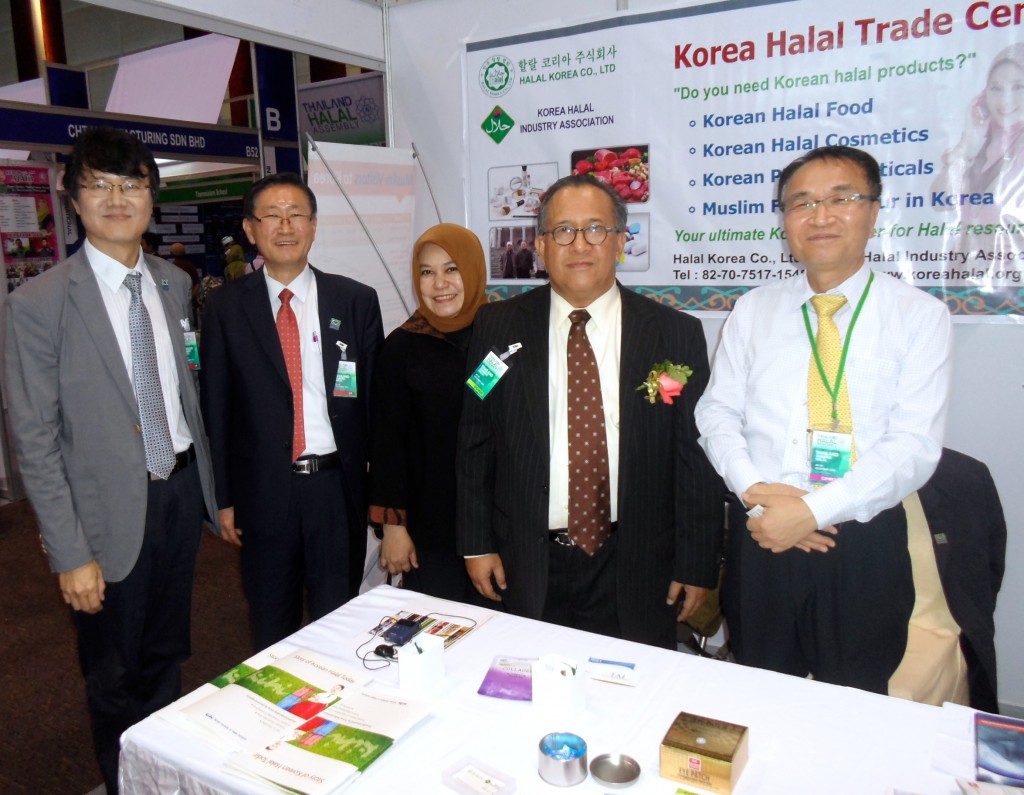 Dr Sapta Nirwandar, (second from right) of the Indonesian Tourism Development Corporation, was one of the speakers. He also took time to visit the exhibition. |
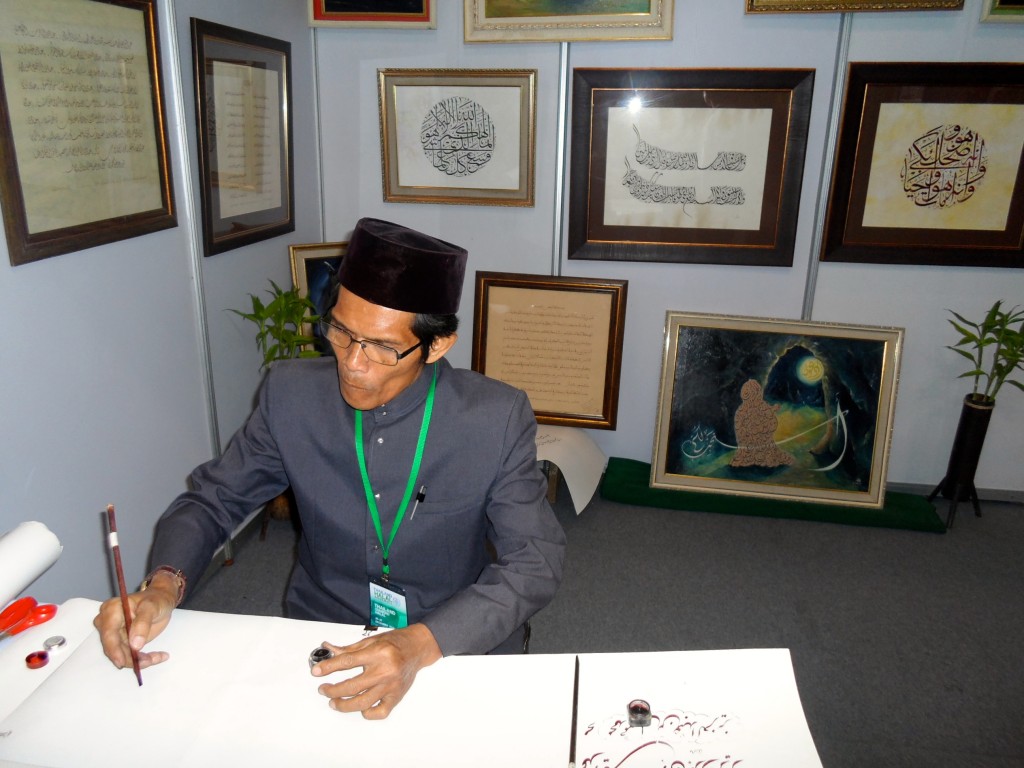 No Islamic expo is complete without a calligraphy demonstration. A Thai-Muslim calligrapher demonstrates his skills. |
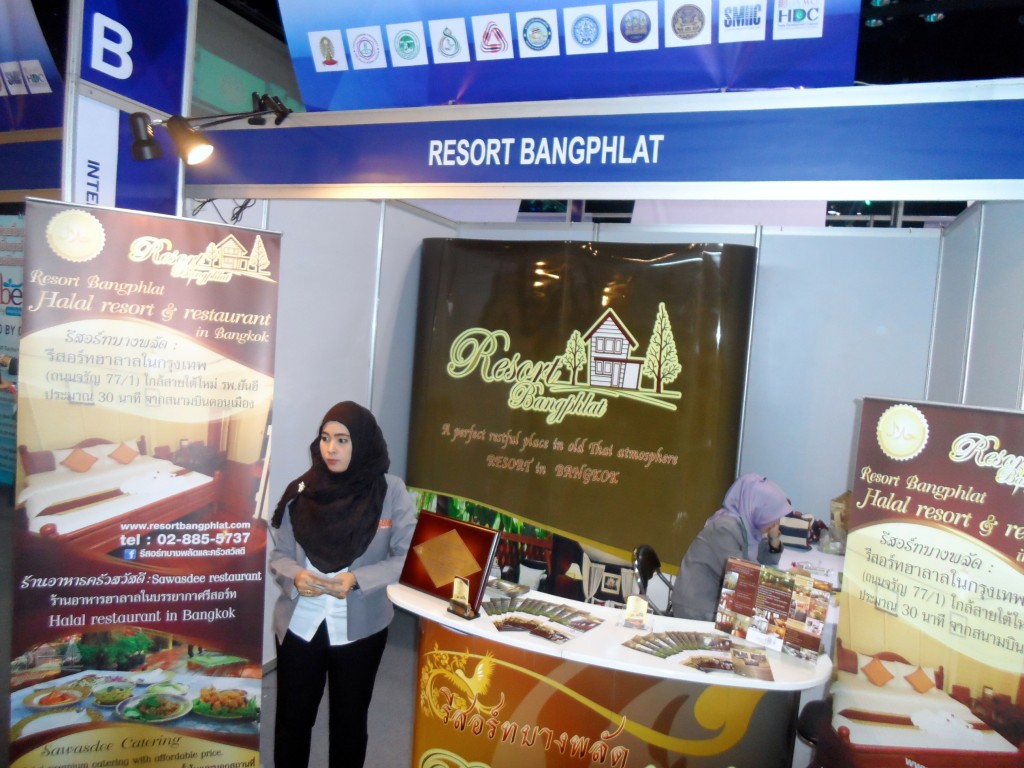 Some of the Thai-Muslim owned tourism businesses exhibiting at the Assembly. |
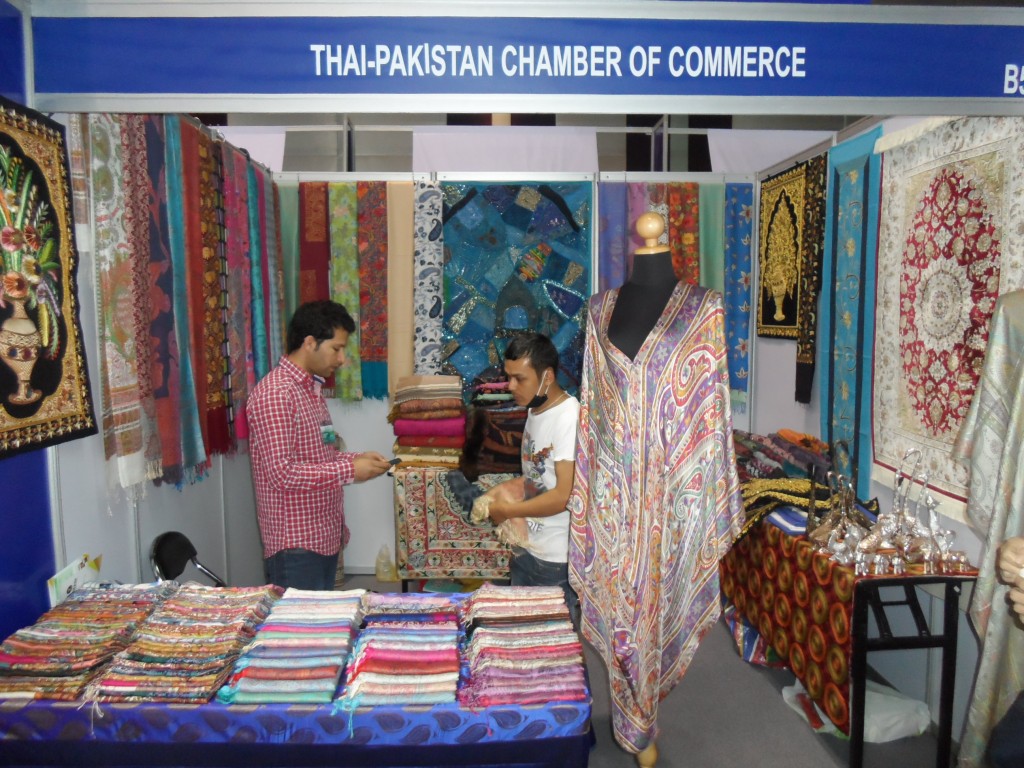 Carpets and fashion items on display at the Thai-Pakistani booth. |
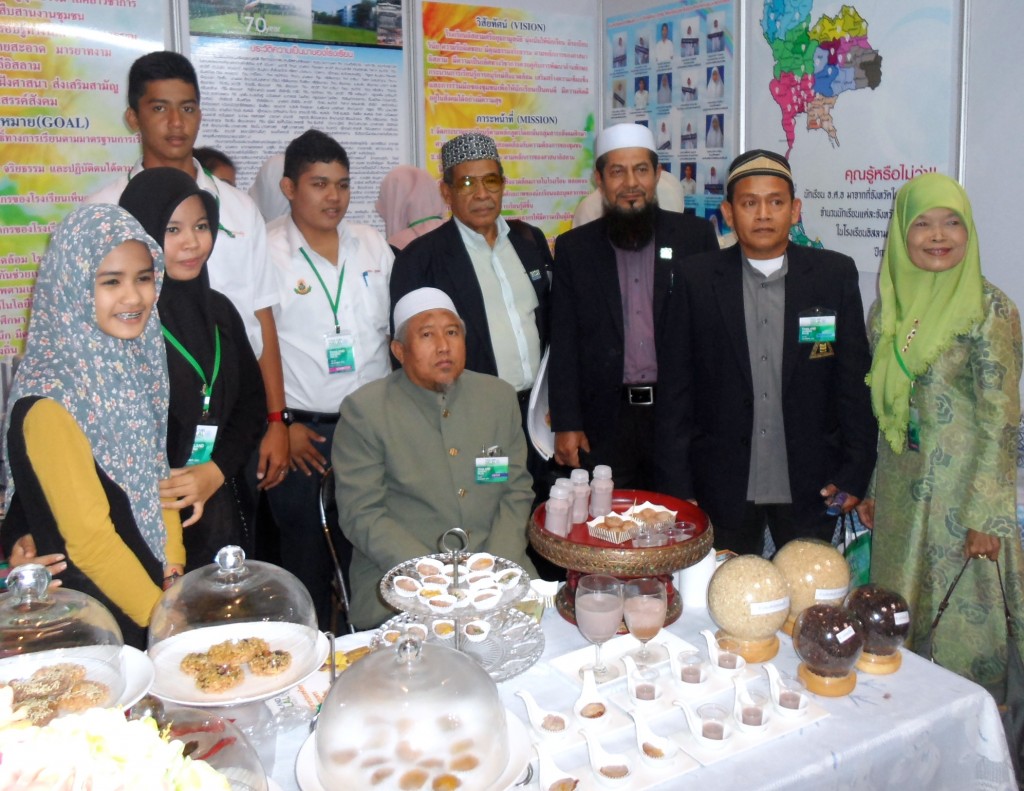 Exhibitors from Ayutthaya Province, Thailand |
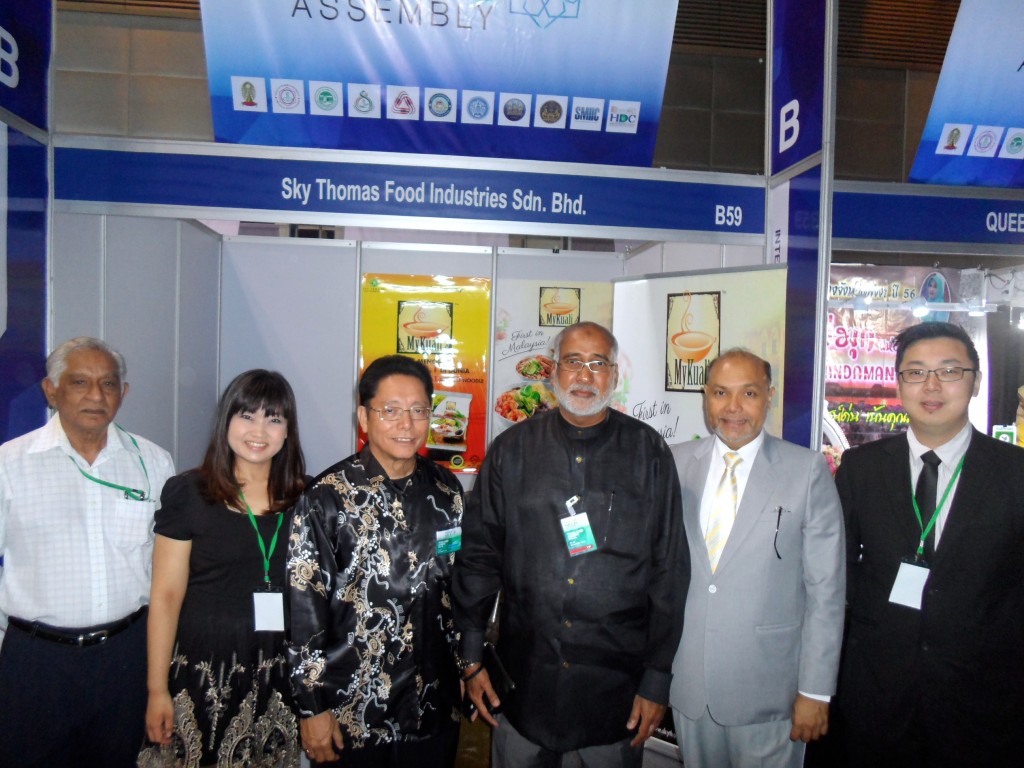 Executive Director of Penang-based Jazary Corporation, Haji Jamal Mohamed bin Sma Mohamed Mydin (third from right) visited the booth of Malaysian noodle company Sky Thomas Food Industries. With him was Thai delegate Trakarn Siamwalla (second from right) |
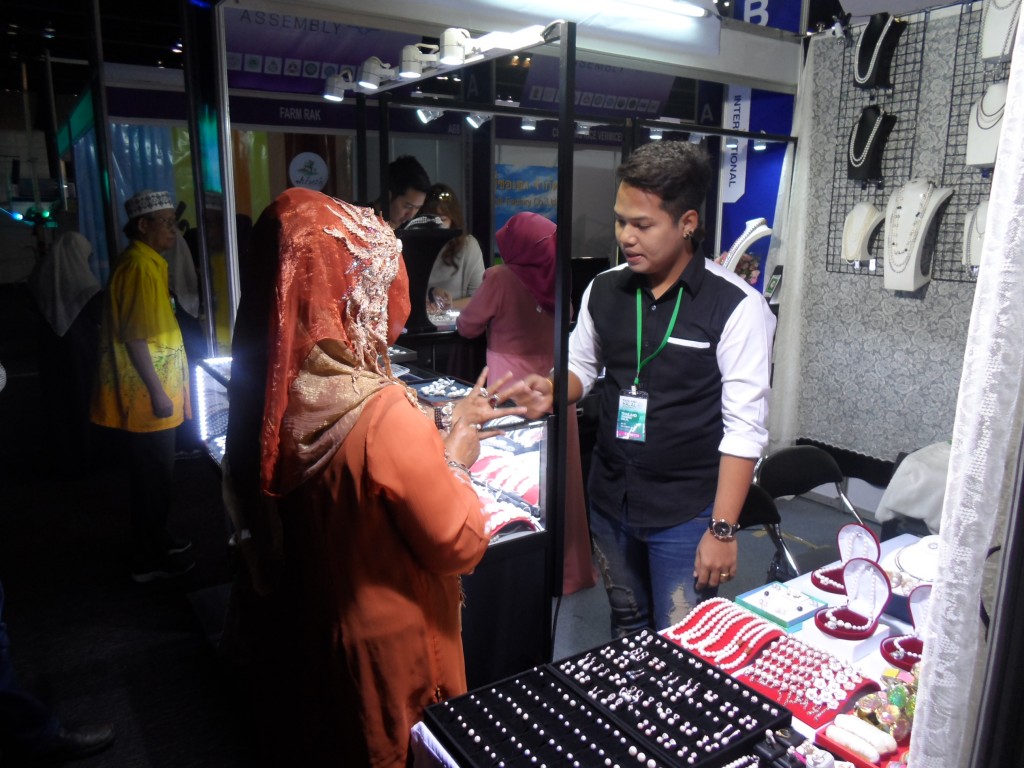 Jewellery items on display. |
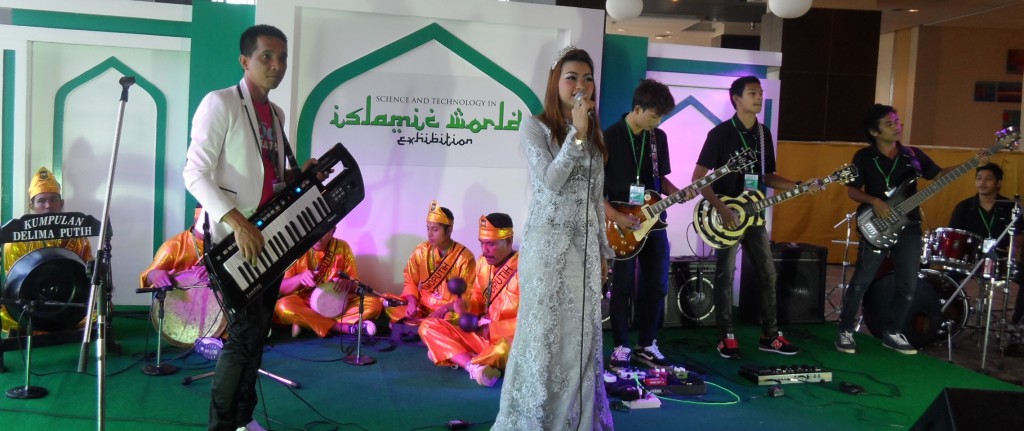 Some great music was being performed, combining both modern and traditional instruments. |
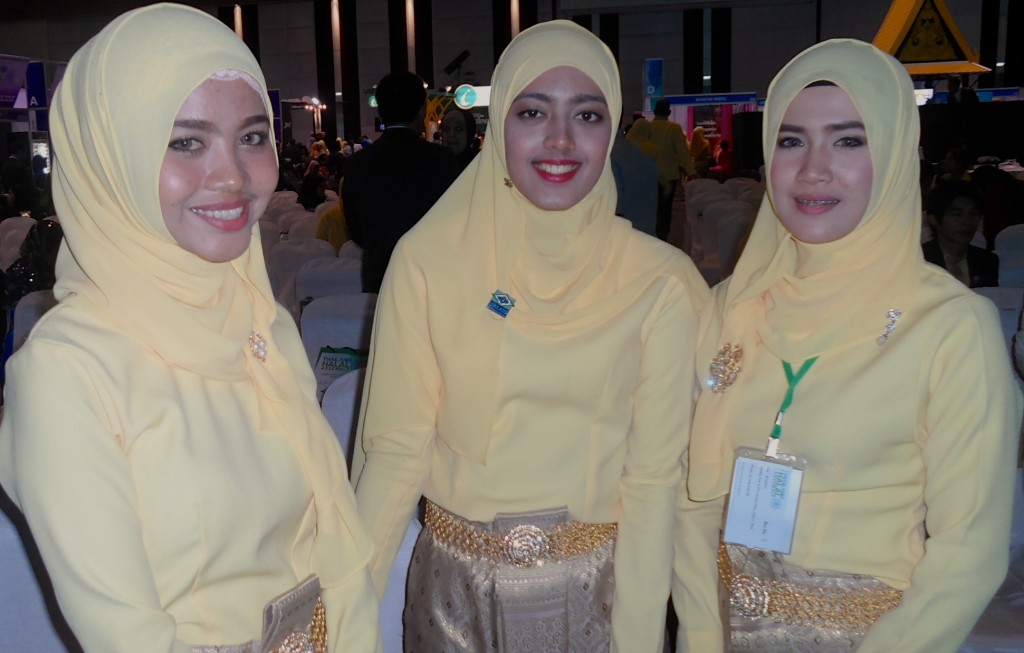 The Assembly made a major contribution towards gender equality and advancement of women. |
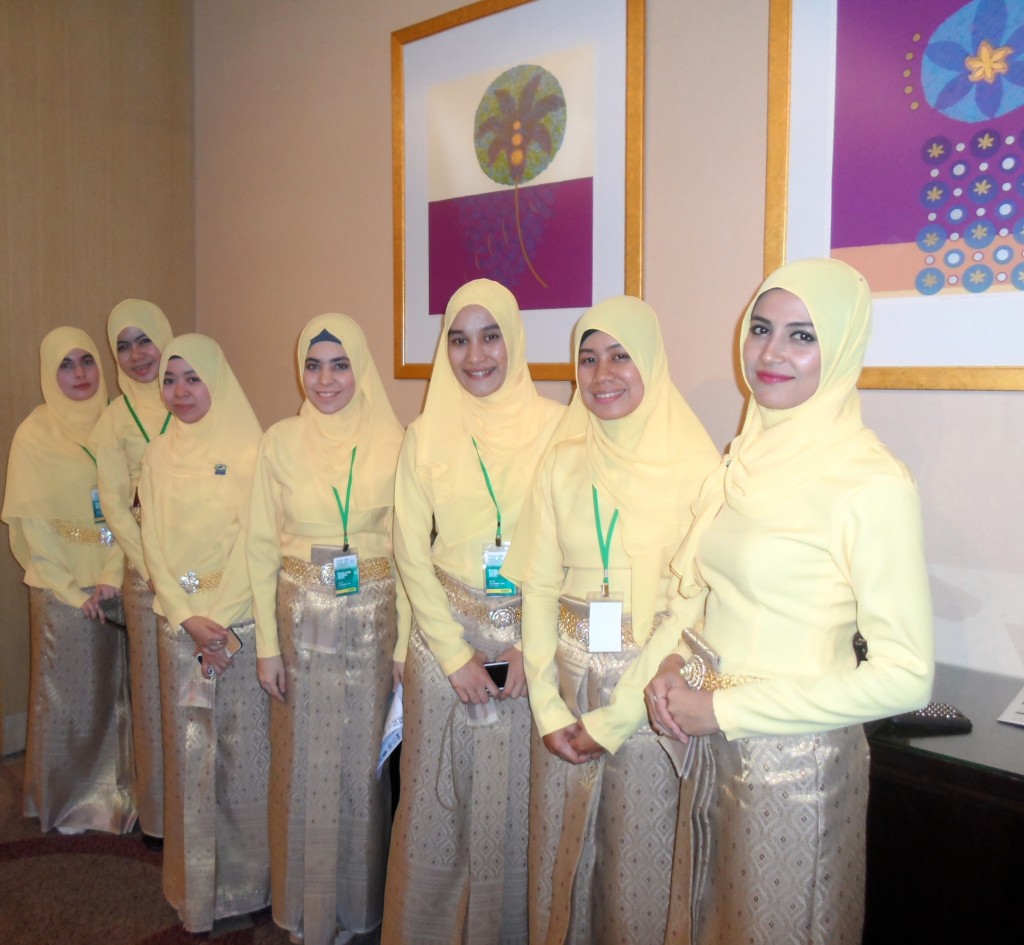 The Assembly made a major contribution towards gender equality and advancement of women. |
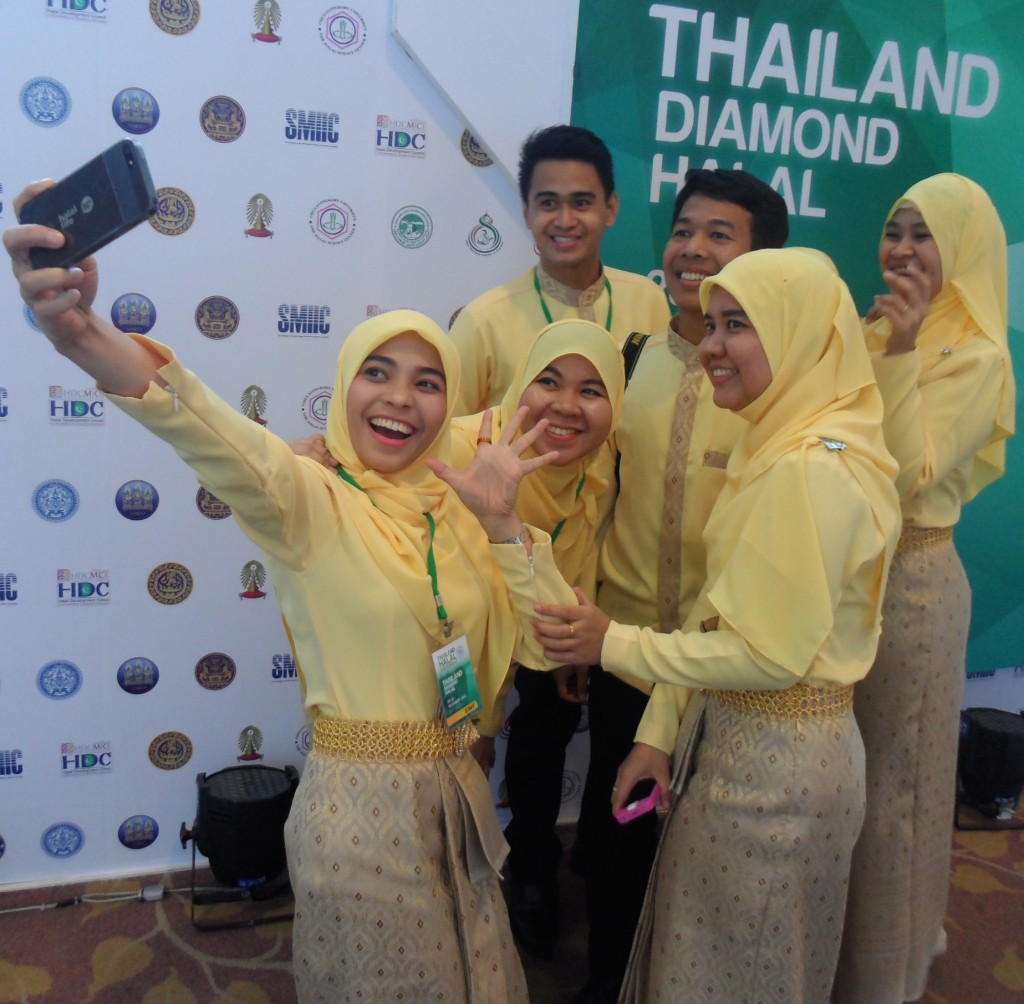 Young Thai-Muslim staffers took some time to record a few moments for posterity. |
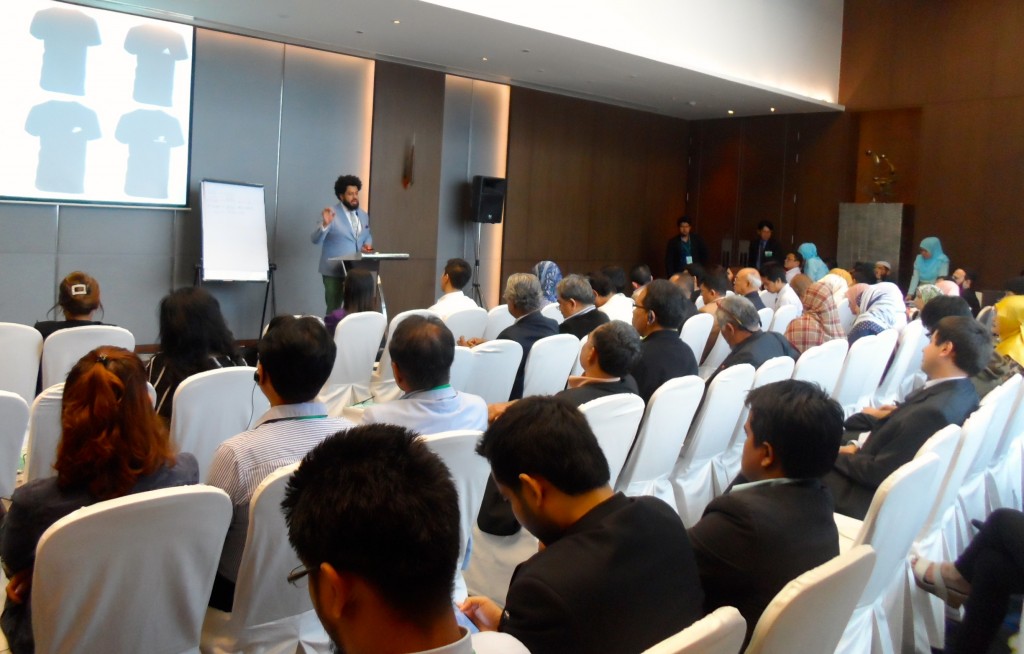 Greenwich University Professor Jonathan (Bilal) Wilson addressing the workshop on branding and marketing. |



Liked this article? Share it!